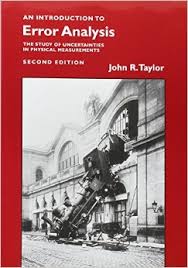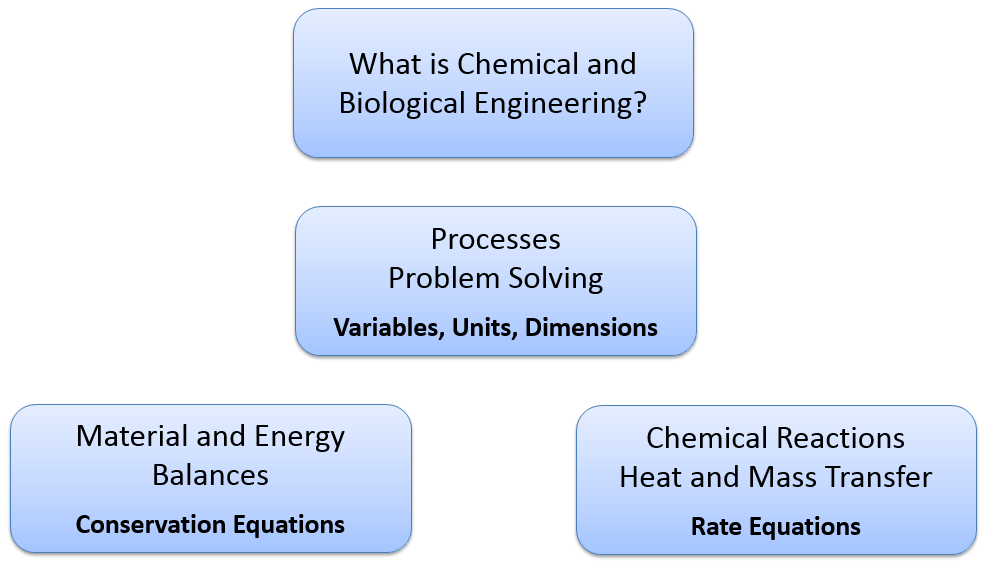Course Syllabus¶
Instructor
Lab Supervisor
Teaching Assistants/Graders
Learning Assistants
Course Location and Times
Required Course Materials
Required: Introduction to Chemical Engineering: Tools for Today and Tomorrow (5th Edition) |
|
Strongly recommended: An Introduction to Error Analysis, J.R. Taylor, University Science Books (1996) |
|
Notes, handouts, and electronic materials posted to the course website |
|
Learning Objectives
The goal of this course is to introduce students to the engineering profession and the field of chemical engineering, guide students through the principles of engineering design and problem solving, and help students develop teamwork, time-management, and communication skills.
A student successfully completing the course with a C or better will be able to…
describe the roles of chemical and biological engineers
take measurements and perform a statistical analysis of the data
apply introductory chemical and biological engineering concepts
conduct basic calculations used in chemical and biological engineering when designing or analyzing chemical and biological processes
effectively communicate her/his work in written form
Policies and Important Guidelines (READ THESE!)
Course Format
The course consists of three main elements:
lectures punctuated by questions and short problems
homework and problem solving sessions
laboratory sessions
Grading
This course will use traditional grading with plus/minus scores or the alternative as indicated here.
Each graded component will contribute to the final grade according to the following:
Homework/scheduled quizzes: 25%
Reflections, ad hoc quizzes, in-class work: 8%
Educational surveys: 2%
Labs (five assignments): 20%
Midterm exams (two): 27%
Final exam: 18%
Notes:
The lab component will be adjusted based on the Group Assessment form contained in the Course Packet. This form, which all students must turn in and will be worth 5 lab points, will allow an adjustment to students’ aggregate lab score based on lab participation.
Each student can drop one homework quiz assignment with no penalty in the final grade. The homework/quiz portion of the grade will come from the best six scores from among the seven graded assignments for each student.
In addition to Note 2, if a student completely abides by the policies listed in the Cellphone and Laptop Computers section (see below), that student can drop one additional homework/quiz assignment with no penalty in the final grade. In this case, the homework/quiz portion of the grade will come from the best five scores from among the seven graded assignments for that student.
Extra credit
Students can gain up to the equivalent of 3% of the total course grade in extra credit by attending and participating in office hours.
Details:
Active participation (e.g., asking questions) during the session is required
Attendance for at least 30 minutes per session is required
Only one office hour per week will be counted toward extra credit, though students are encouraged to attend more sessions if they wish
Each eligible session will count for 1/10 of the total (0.3%)
Up to 10 sessions will count toward the total
So, if a student participates in an office hour per week for 9 weeks during the semester, their end-of-semester grade will be boosted by 2.7%
Due Dates
The week in which assignments are due is given in the course schedule.
Homework is due on Tuesdays after the quiz.
Late assignments will not be not accepted.
Lab reports are due at the beginning of class on Tuesdays (for L01, L03) and Thursdays (for L02, L04).
The Group Assessment Form is due along with the final lab report.
Homework, In-Class Questions/Exercises, and Quizzes
On days when the homework is due, an iClicker quiz will be given at the beginning of class. The graded score will come from this quiz, which will cover material from the homework assignment and in-class questions.
A completed homework assignment must be submitted in order to receive a grade for the quiz.
In-class exercises and quizzes may require an iClicker. It is the students’ responsibility to make sure that they have the iClicker with them for class and that it is properly registered.
Because, in-class questions will be given frequently, students should bring a calculator and iClicker to every class.
Notes:
In-class questions will be given on a regular basis. Students are expected to retain their work for later reference.
The homework assignment may not be graded in detail, but should be complete and show a high level of effort.
Cell Phones and Laptop Computers
Cell phone use is authorized only for taking pictures of materials presented during lectures or labs. Other than this usage, cell phones must be turned off or silenced while in class. This includes message alert signals. Under no circumstances are students permitted to answer their cell phones. If you leave class to take a call, do not return.
Laptop computers brought to class should be used only for taking notes.
Students may or may not receive a warning before losing the grading credit listed above Grading section above.
Attendance
Attendance in all class, problem solving, and laboratory sessions is mandatory.
Students should not expect to receive a grade for missed laboratory exercises, exams, or quizzes, unless all of the four following are met:
the absence is due to a university-sanctioned activity or approved religious observance, AND
the instructor is notified via a class absence letter from the appropriate program director on record with the Division of Student Affairs offices or the Department of Athletics, or the appropriate department head, or the dean of students, AND
the instructor receives the class absence letter at least 14 days before the scheduled absence, AND
the student makes up any required work.
In the case of absence due to a serious illness, evidence must be presented to the instructor within seven days of the illness in the form of a letter from the CSU Health Center or a licensed physician indicating the date of the examination or treatment. The student must then make up the required work in a timely manner in accord with instructions from the instructor.
A list of university-sanctioned events, a draft class absence letter, and class attendance regulations can be found at http://www.studentaffairs.colostate.edu/class-absence-info or by searching for “class absence” in the search box on the CSU homepage. Information about accommodation for religious observances can be found at http://oeo.colostate.edu/religious-accommodation.


